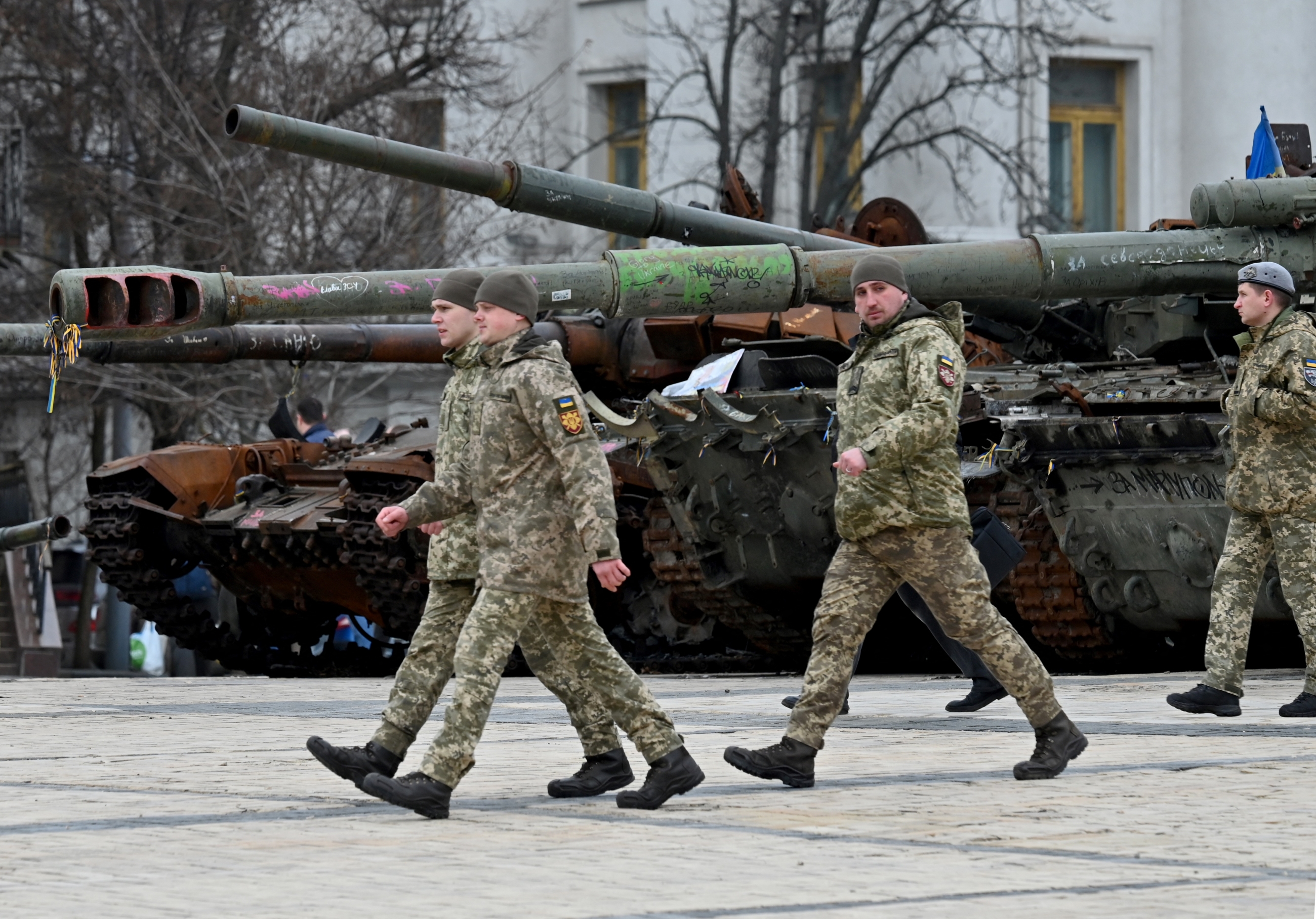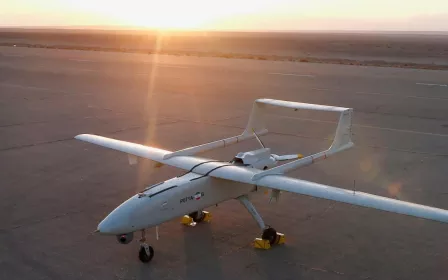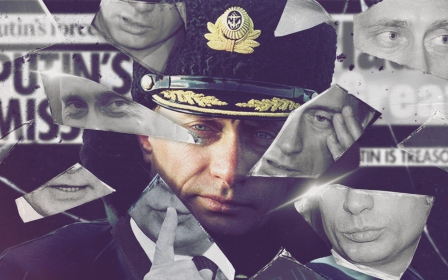Russia-Ukraine war: One year on, neither side has a clear path to victory

"The third world war has already begun." This comment by French historian and anthropologist, Emmanuel Todd, to Le Figaro is probably the most accurate description of the state of the world since Russia invaded Ukraine 12 months ago.
The 24 February 2022 will be remembered as the start of one of the 21st century’s most pivotal events. A long-standing dispute between Russia and Ukraine about the latter's treatment of its Russian ethnic minority has turned into a global confrontation.
This is not 'Putinist' whataboutism
Russia holds the primary responsibility for the outbreak of the war. It has resorted to the use of force, carried out its "special military operation" brutally, and repeatedly violated international law. It thus deserves to be isolated, sanctioned, and punished.
However, the responsibility does not stop in Moscow. A quarter of a century of unnecessary and reckless Nato eastward expansion has created a toxic environment for this war by fuelling the Russian leadership's security paranoia. Repeated warnings against this enlargement by authoritative American statesmen, officials, and academics, including the current director of the CIA, went unheeded.
Anyone who denies Nato's eastward expansion as a significant cause for Russia’s invasion of Ukraine is either affected by groupthink or acting in bad faith.
New MEE newsletter: Jerusalem Dispatch
Sign up to get the latest insights and analysis on Israel-Palestine, alongside Turkey Unpacked and other MEE newsletters
Since 2014, European diplomacy, through the famous Normandy Format, has struggled - and failed - to neutralise the Russo-Ukrainian ticking time bomb. Former German Chancellor Angela Merkel and former French President François Holland have recently shed a different light on why the so-called Minsk Agreements did not prevent the current catastrophe.
Western political mantra claims that even if there have been mistakes in the past, a circumstance that the US and the EU would hardly admit anyway, these do not justify the Russian invasion. While this may be true, the assertion would sound far more credible if it had also been applied to past western military actions.
Serbia's perpetration of the massacre of Racak which triggered the war in Kosovo in 1999; Iraq's alleged possession of weapons of mass destruction invoked for the 2003 US invasion; and Gaddafi’s threats against segments of the population which in 2011 transformed a no-fly zone into a regime change in Libya, did not justify war either - not to mention western democracies' deafening silence on Israel's periodic bombings of Syria in the last decade.
This is not "Putinist" whataboutism. It is the mere, humble request for having the widely claimed rules-based world order valid for all. Whataboutism and double standards, after all, are two sides of the same coin.
It is hardly surprising, then, that even The Economist had to admit that the rest of the world "see[s] the war as a contest between autocrats and hypocrites".
An existential war
The last 12 months also showed a fair amount of miscalculations.
Russia wrongly believed that a quick and decisive victory could install, once and for all, a friendly government in Kyiv, and close off forever Ukraine’s entry into Nato and the EU.
Nato and the EU wrongly believed that their unprecedented sanctions would have brought Russia to its knees in a matter of weeks.
The conflict has now turned into a war of attrition. Those who show more resilience and have the best military-industrial complex prevail in these cases.
On this last point, there is no match between Russia and Ukraine. However, if the so-called Global West is added to the equation, the calculus changes.
So far, no one has been able to predict accurately how long the Russian military-industrial complex will last. Russian leaders themselves probably have no clear idea about that.
Likewise, no one has been able to explain, convincingly, after trillions of dollars having been spent for decades, what happened to the western military-industrial complex which is supposed to spare Ukraine from defeat. Western taxpayers, especially the American ones, should be given an explanation.
The only certainties have been the extraordinary Russian resilience against western sanctions, matched by an equally extraordinary Ukrainian resilience on the battlefield.
Western governments and mainstream media are pouring rivers of ink by portraying Russia at a breaking point. Let’s hope they are more accurate than they have been on the effectiveness of sanctions. Russian leaders are boasting of their population's patience and resilience; they should hope this is more accurate than their initial estimates about a Ukrainian collapse.
The main problem is that the war is becoming existential for both sides, while it should be only so for Russia. There is a zero-sum game logic at play, where the worst kind of escalation - the nuclear one - is nonchalantly contemplated.
Former president and current deputy chairman of the Russian Security Council, Dmitrij Medvedev, has claimed that the US is seeking Russia's defeat and that any option, including the nuclear one, is on the table to prevent this outcome.
Unfortunately, Nato Secretary-General Jens Stoltenberg joined the nuclear holocaust party, too, by claiming that the real risk is not an escalation but a victory for Russia. The leaders involved in the conflict all seem to be in the grip of a form of "nihilistic vertigo".
Few hopes
On the eve of its first anniversary, the debate on the Russia-Ukraine war was marked by three specific events. They all left few hopes about a negotiated settlement.
The Munich Security Conference (17-19 February) was the usual western self-congratulatory gathering devoid of any new ideas on how to get out from the current cul de sac, only the usual mantras repeated ad nauseam.
Neither western leaders nor the Russian government has so far dared to spell out their possible clear and realistic definitions of victory
US President Joe Biden’s brave and iconic visit to Kyiv on 20 February was nothing less than the highest symbolic confirmation of the US's backing of Ukraine against Russia. Biden put his face on it, and it is difficult to imagine a better political spot for his candidacy in the 2024 presidential election.
Russian President Vladimir Putin’s speech on 21 February did nothing but confirm Russia's commitment to prevailing in the conflict. He again framed it as a civilisational clash with the West, even before a political and military one. There is no longer any western option for Russia. Its future is oriented eastward. The announced freeze of the nuclear Start agreement with the US is a further worrisome development in an already critical situation.
Meanwhile, western political and strategic thinking appears to be still clinging to events that occurred several decades ago: the Munich Conference of 1938 and the 1962 Cuban Missile Crisis. Both remain the democracies’ polar stars. Both are often quoted as reliable blueprints against overbearing behaviour that can be rolled out for this crisis.
Too bad that in both crises, western thinking continues to cultivate harmful misinterpretations. Long before February 2022, western policies towards Russia were set on autopilot.
Neither western leaders nor the Russian government has so far dared to spell out their possible clear and realistic definitions of victory. Both are unwilling to imagine a possible notion of stalemate upon which political negotiation could be built. The word diplomacy has disappeared from their respective vocabularies.
Only Ukraine has offered its understandable, although unrealistic, idea: the reconquest of all territories annexed by Moscow, including Crimea; compensation for war destruction; and an international tribunal to judge Russia's crimes. It is not clear by whom and how such terms could be imposed on a nuclear superpower holding a veto in the United Nations Security Council.
Uncertain future
As to realism, and with all due respect to western democracies’ expectations, China appears increasingly aligning with Russia.
State Councilor Wang Yi recently visited Europe. He addressed the Munich Security Conference, had talks with Secretary of State Antony Blinken, and then moved to Moscow to see top Russian officials including Putin.
To a large extent, the Global Rest seems to believe that 'US and European support for Ukraine is driven by the desire to protect Western dominance'
The perceived outcome of the visit is that Wang lectured the audience gathered in Munich on multilateralism and international law; he then advised the US to seek counselling for what would appear to be a nervous breakdown due to the balloons issue, and, finally, he publicly reaffirmed close coordination with Moscow.
President Xi Jinping is expected in Moscow this spring. It is hard to believe that he will go all the way to Russia just to announce a major review of Beijing's strategic partnership with Russia during the top geopolitical confrontation of our time.
Western leaders would do better to stop conflating their own propaganda with reality.
Europe's loss
Among the war’s multiple casualties, there is also the European Union. Instead of using this opportunity to give content to its claimed strategic autonomy and work for a negotiated solution while maintaining its necessary support to Ukraine, it has preferred to degrade its status.
It now has an ancillary role to Nato’s primacy, and it has changed its historical Franco-German driving engine to become a Baltic-Polish traction institution. And paradoxically, even the recently "Brexited" UK has more influence in Brussels today than in the past.
The major accomplishment Putin has achieved with the war is the extraordinary reinvigoration of the Transatlantic partnership. He deserves a commemorative bust provocatively placed inside the North-Atlantic Council great hall in Brussels with the inscription, "The man who saved the Atlantic Alliance" beneath it.
Nato’s eastward enlargement to Ukraine has been momentarily stopped but the expansion northwards (Finland and Sweden) is right on track.
The major accomplishment of the Global West, instead, has been the further alienation of the Global Rest.
A poll published on 22 February has confirmed previous assessments: to a large extent, the Global Rest seems to believe that "US and European support for Ukraine is driven by the desire to protect Western dominance".
In other words, it has nothing to do with defending democracy and Ukraine’s territorial integrity, rather it is about the West’s authority in the world.
In essence, it all goes back 100 years to Sir Halford Mackinder’s Geopolitical Pivot of History and its subsequent elaborations by Nicholas Spykman and Zbigniew Brzezinsky. In the 21st century, the US began to lose its world primacy, sketched since 1917, officialised in 1945, and made unquestionable from 1991 onwards.
Since 2008, however, Eurasian continental integration under China’s Belt and Road Initiative and Russia’s Eurasian Economic Union - both under the political clout of the Shanghai Cooperation Organisation – were setting a new multipolar order, unacceptable t0 the US, where Europe was supposed to be the cherry on top of the cake.
Through the conflict in Ukraine, which German Chancellor Olaf Scholz declared a historic turning point in his Zeitenwende speech of last February, Washington has temporarily stopped this pivot.
As to the future, the jury is still out.
The views expressed in this article belong to the author and do not necessarily reflect the editorial policy of Middle East Eye.
Middle East Eye delivers independent and unrivalled coverage and analysis of the Middle East, North Africa and beyond. To learn more about republishing this content and the associated fees, please fill out this form. More about MEE can be found here.








